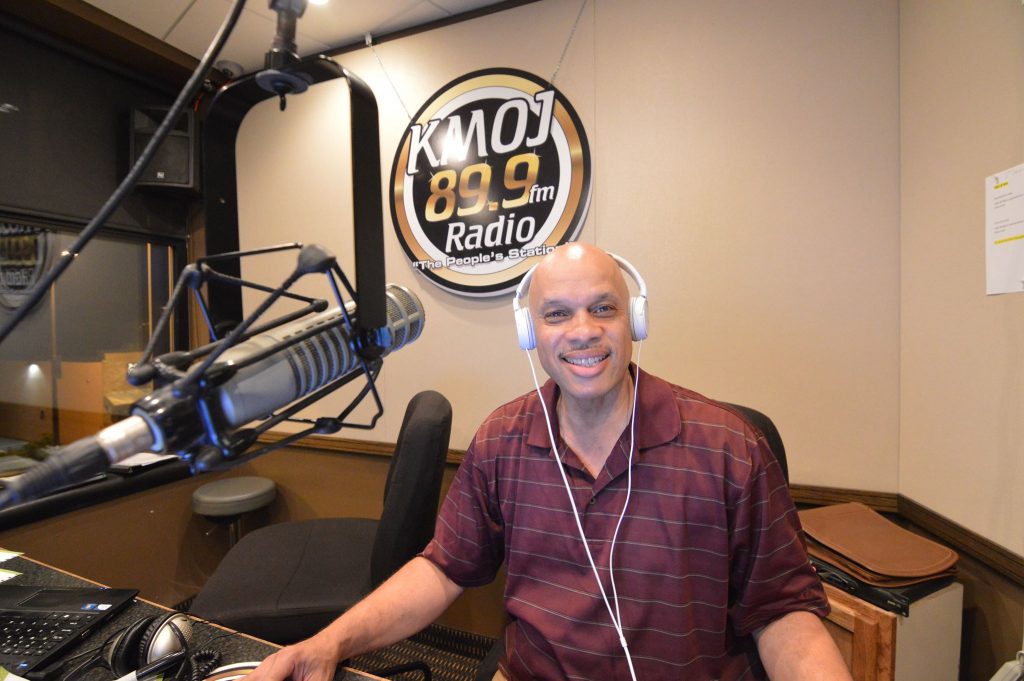Even though Ray Richardson ’77 formally retired in 2013 from a long career in sports writing, he felt a need to put on his reporter’s hat again once he found out police had killed George Floyd in plain sight of onlookers on Memorial Day night in Minneapolis.
Appears InRichardson, the first-ever African-American sports reporter at The Vidette who went on to have a long tenure as an NBA writer at St. Paul’s Pioneer Press, had dabbled in some projects postretirement. He’s an on-air personality at KMOJ-FM radio in the Minneapolis-St. Paul area. He also does career development in the area, where he helped run a commercial driver’s license truck-driving program from 2017-19 while working for YWCA St. Paul.
That’s where he met Floyd, who was training to get his Class A license. In a Facebook post, Richardson stated Floyd had obtained his permit but never finished his training because he needed income and started working full-time. He’ll never have the opportunity to go back and finish. His life was taken by police officers, one of whom is charged with second-degree murder while three others are charged with aiding and abetting second-degree murder while committing a felony, and with aiding and abetting second-degree manslaughter with culpable negligence. Floyd became the latest unarmed African-American killed by law enforcement, setting off civil unrest around the country. Amid the anger, chaos, and pursuit of peace, Richardson felt compelled to let people know what kind of person the world lost.
“It touched me a lot deeper than other situations, and I felt like I needed to be out here more to help cover this story and let people know some of the other things he was about,” said Richardson, who wrote in his post how “respectful and dedicated (Floyd) was.”
Richardson covered Floyd’s memorial service June 4 in Minneapolis for KMOJ-FM. He interviewed celebrities such as Kevin Hart, Ludacris, and Tyrese Gibson. In addition, he covered a drive at a Cub Foods parking lot the following day where Minnesotans worked together to hand out food and groceries to neighborhood residents affected by the unrest.
Jeff Wagner ’09, a TV-10 alum, has also been covering the story as a general assignment television reporter at WCCO/CBS Minnesota. He too feels a strong journalistic calling at this time, and he carries this mindset even as the press has come under fire and sometimes attacked during protest coverage. Wagner himself had a live shot interrupted when Hennepin County Sherriff’s Office dispersed a peaceful protest at Floyd’s death site.
“My job has never been more important than it is right now in terms of showing what is happening to the rest of the world,” Wagner said. “It needs to be understood what is happening here.”
Both graduates from the School of Communication have noticed an overarching theme from citizens in the city where the movement started.
“No matter how people are expressing or showing it, almost everyone wants something to change from this,” Wagner said.
The first three nights after the video of Floyd’s death began to surface were tough, Richardson said. Unrest was high in the city. Crowds began coming in from out of state. The Third Precinct police station in Minneapolis was set ablaze. Wagner did say that most protests in Minneapolis have been peaceful and have only changed due to circumstance, such as a semitruck driving through a crowd of people on Interstate 35.
Since those nights, Richardson said the community has made a concentrated effort for peace to bring the focus back on the problem and not the reaction.
Both men have told different angles of the ever-evolving story. Wagner has delivered breaking news throughout the last two-and-a-half weeks, even going on Facebook Live during his off days. Richardson has covered the aftermath, noting how many news cameras from around the world he saw at Floyd’s memorial service.
Their reporting has helped bring attention to the systemic racism and police brutality that people of all backgrounds are asking to change. Minneapolis itself has seen some members of its local government call for defunding of the police department. Because of what they are seeing, hearing, and experiencing, people across the world are holding elected officials accountable and urging all citizens that silence is not enough.
“These protests have really forced the city council and leadership to take action faster than they had to,” Richardson said. “As long as they keep the pressure on, things are going to change.”


